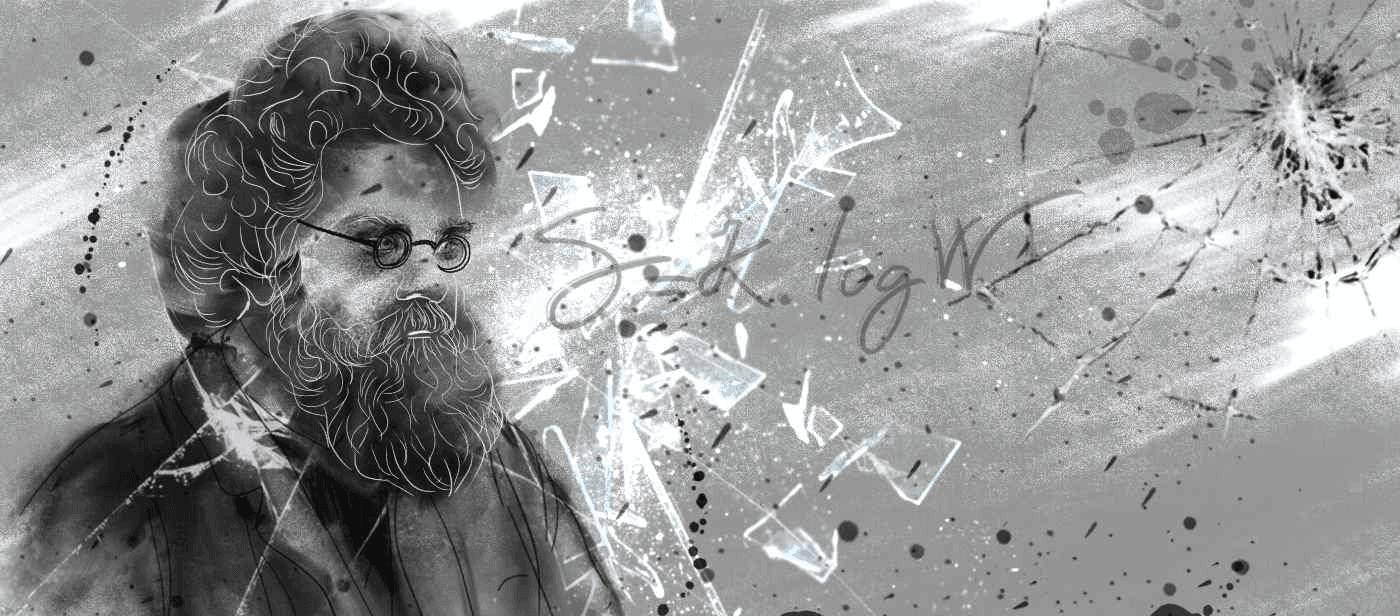
Mathematicians can recognize Cauchy, Gauss, Jacobi, or Hermholtz after reading a few pages, just as a musician can recognize Mozart, Beethoven, or Schubert after reading the first few bars. --Ludwig Boltzmann
The world seems unfair to anyone. It's a story about the tragic genius of science whose efforts fundamentally changed several branches of physics. He is primarily known for statistical mechanics and the second law of thermodynamics. He was one of the most important advocates of atomic theory, a scientific model that was highly controversial at the time.
<h1 class="pgc-h-arrow-right" data-track="3" > early life</h1>
Ludwig Eduard Boltzmann was a physicist and philosopher born in Vienna, Austria in 1844.
In 1863, at the age of 19 he began his scientific journey, when he was a physics and mathematics student at the University of Vienna. Only three years later, in 1866, he completed a thesis on the theory of gas dynamics under the direction of Josef Stefan and received his doctorate. At the age of 25, at the recommendation of Stefan, he became a full professor of mathematical physics at the University of Graz.
He was a restless man who kept changing jobs. After leaving the University of Graz, he joined the University of Vienna in 1873 as a professor of mathematics. After working there for three years, he returned to graz as director of experimental physics. In 1887 he accepted a position in Theoretical Physics in Berlin, but later he changed his mind. In 1890 he joined the University of Munich in Germany as a professor of theoretical physics. He was an outstanding teacher and respected by the scientific community.
<h1 class="pgc-h-arrow-right" data-track="7" > contributions to science</h1>
He was one of the first to recognize the significance of Maxwell's unified electromagnetism. He derived the Maxwell-Boltzmann distribution in 1871. This is a probability distribution used to describe the velocity of particles, which move freely within a container and have a low frequency of collisions when interacting with a hot environment. The energies of these particles follow Maxwell-Boltzmann's statistics.
He described the second law of thermodynamics in the early 1870s on the basis of the atomic theory of matter. It states that "the entropy of the entire universe as an isolated system always tends to increase". He explained that this is a statistical law that can be deduced from the principles of mechanics.
He developed much of the content of statistical mechanics, which was later inherited by Josiah Willard Gibbs. He proposed the famous entropy formula between 1872 and 1875, which was the bridge between statistical mechanics and thermodynamics, and was later revised by Max Planck in 1900.
He expanded his study of blackbody radiation on the basis of Stefan's law. In the study of interstellar gas, star clusters, non-relativistic plasmas, etc., the theory of gas dynamics has been deeply calculated.
<h1 class="pgc-h-arrow-right" data-track="12" > philosophical contribution</h1>
When he returned to Vienna, he worked mainly on theoretical physics and philosophy of science. In natural philosophy, he taught the course "Methods and General Theories of the Natural Sciences", which had previously been held by Ernst Maher. His lectures were very popular at the time, and the classrooms were often fenced off.
He was an evolutionist, not only because Charles Darwin came up with powerful theories for the most important areas of science at the time. Rather, he believed that Darwin's method was the key to understanding the truth or falsity of scientific theories.
For him, his science and philosophy were a whole. He believes that the combination of the two can solve many natural problems.
<h1 class="pgc-h-arrow-right" data-track="16" > argued with Ostwald and Mach</h1>
His work on statistical mechanics was thoroughly criticized by Wilhelm Ostwald, who based the physical science entirely on energetic conditions.
In 1895, Ostwald published a paper at a scientific conference in which he asserted: "The practical irreversibility of natural phenomena proves the existence of processes in which the equations of mechanics cannot describe processes, and thus the conclusion of scientific materialism is determined." ”
Boltzmann was supported by Felix Klein. The battle between Boltzmann and Ostwald was like a battle between a bull and a matador. This time, however, the bulls won... Boltzmann's argument prevailed. The young mathematicians of that era were on Boltzmann's side.
Ostwald and many European scientists were unable to understand Boltzmann's logic about the statistical nature of the universe and led the movement against Boltzmann.
Boltzmann even left his post in Vienna, where Mach was professor of philosophy and the history of natural sciences. He and Maher were never polite.
His ideas were later supported by atomic physics. For example, Brownian motion can only be proved by statistical mechanics.
In 1909, Ostwald finally admitted that he was wrong, and Mach never admitted wrong. If Boltzmann had lived a few more years, he would have seen his efforts achieve real success, and his work would have been experimentally validated.
<h1 class="pgc-h-arrow-right" data-track="25" > personality</h1>
In historical reports, everyone who has met Boltzmann claims to be a great man. Despite many scientific and philosophical debates. He was a good teacher and had a good relationship with his students. He also often invited some bright students to his home. Music and art also had a special place in his life. He was an outstanding pianist. He also has an unparalleled sense of humor.
<h1 class="pgc-h-arrow-right" data-track="27" > the last days</h1>
He had spent most of his life defending his theories, and he began to feel that his life's endeavours were about to collapse. He was in poor health, often argued with scientific opponents, and became mentally unstable. It is said that not getting academic recognition made him depressed.
In 1906, while on holiday with his wife and daughter in Trieste, he committed suicide at the age of 62. The cause of his suicide was attributed to severe depression caused by mental illness.
Boltzmann's tombstone is inscribed with his famous formula for entropy as a tribute to splendor.